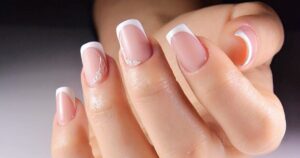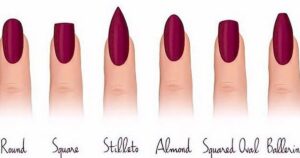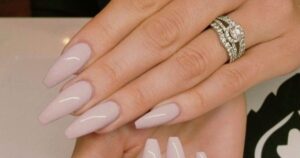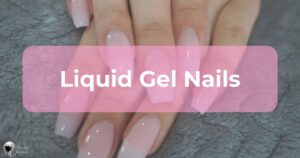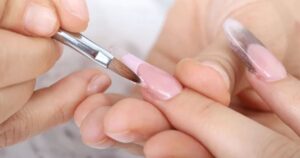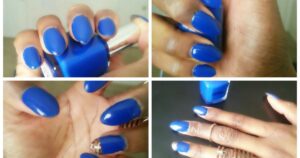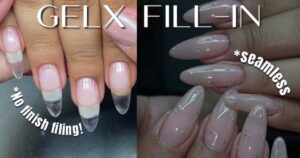Itchy Hair Extensions revolutionizes by offering comfortable and irritation-free hair extension solutions. It caters to individuals seeking to enhance their hair length and volume, unlike traditional hair extensions that often cause discomfort and itchiness. Itchy Hair Extensions emphasizes high-quality materials. It utilizes innovative techniques. The goal is to provide a comfortable and enjoyable experience for its customers.
The critical feature of Itchy Hair Extensions is their commitment to using soft, hypoallergenic materials on the scalp and skin. Itchy Hair Extensions uses premium quality human or synthetic hair. How To Relieve Itchy Hair Extensions, It carefully chooses hypoallergenic adhesives or attachment methods. This minimizes the risk of irritation and itchiness often found in other brands. This makes their extensions suitable for individuals with sensitive skin or those prone to allergies.
Itchy Hair Extensions also offers various styles, lengths, and colors to cater to diverse customer preferences. Whether you’re looking for long and flowing locks, voluminous curls, or a bold and vibrant hair transformation, it has options to suit every individual’s desired look. Itchy Hair Extensions excels with innovative technology. They prioritize customer satisfaction. As a result, they have become a go-to choice for high-quality, itch-free hair extensions.
Understanding the Causes of Itchy Hair Extensions
Before diving into the remedies, it’s essential to understand the underlying causes of itchy hair extensions. Several factors can contribute to this discomfort, including:

Improper Installation
If your hair extensions are not installed, they can cause tension on your scalp, leading to itching and discomfort. Having your extensions be applied by a professional stylist who can ensure a secure and comfortable installation is crucial.
Allergic Reactions
Some individuals may experience allergic reactions to certain types of hair extensions or the products used during the installation process. This allergic reaction can manifest as itching, redness, or a rash. If you suspect an allergic reaction, consult your stylist or a dermatologist for guidance.
Dryness and Lack of Moisture
Hair extensions, like natural hair, require adequate moisture to stay healthy and avoid itchiness. Improper care, excessive heat styling, or overuse of drying hair products can strip the extensions of their natural oils, leading to dryness and itchiness.
Now that we understand the potential causes let’s explore effective methods to relieve itchy hair extensions.
Tips to Relieve Itchy Hair Extensions
Good hygiene practices are crucial to prevent itchiness. Wash your hair extensions regularly using a mild, sulfate-free shampoo. Focus on the scalp area and ensure you rinse thoroughly to remove any product residue that may contribute to itchiness.
Use a Soothing Scalp Treatment
Applying a soothing scalp treatment can help alleviate itchiness. Look for products containing natural ingredients like aloe vera, tea tree oil, or chamomile, which have anti-inflammatory and calming properties. Massage the treatment onto your scalp, focusing on the areas where the itchiness is most intense.
Avoid Scratching
Although it can be tempting, scratching your itchy hair extensions will only worsen the irritation. Scratching can cause redness, inflammation, and even damage to the wings. Instead, try gently patting or massaging your scalp to relieve the itchiness without harming your hair or extensions.
Moisturize Regularly
1. To combat dryness and itchiness:
2. Keep your hair extensions well-moisturized.
3. Apply a lightweight, oil-based moisturizer or hair serum to the ends of the wings, focusing on the areas that feel dry or itchy.
4. Avoid applying the product to the roots or scalp to prevent any potential slippage of the extensions.
Avoid Heat Styling
Excessive heat styling can deplete moisture from your hair extensions, exacerbating the itchiness. Limit heated styling tools and opt for heat-free hairstyles like braids or updos to give your hair a break and allow it to recover.
Avoid Tight Hairstyles
Tight hairstyles, such as high ponytails or tight buns, can put excessive tension on your scalp and hair extensions, leading to itchiness. Opt for looser hairstyles that distribute weight and minimize discomfort.

Protect Your Hair Extensions at Night
Before bed, tie your hair extensions in a loose braid or bun to prevent tangling and friction, which can cause irritation and itchiness. Consider using a satin or silk pillowcase to minimize friction and help your hair extensions retain moisture.
Consult with Your Stylist
If the itchiness persists despite your efforts, it’s essential to consult with your stylist. They can examine your hair extensions, identify potential issues, and provide specific recommendations for itchiness. They may suggest adjusting the installation, changing the type of extensions, or using different hair products.
Avoid Harsh Hair Products: Some hair products, including shampoos, conditioners, and styling products, contain harsh chemicals that irritate the scalp and exacerbate itchiness. Opt for products formulated for hair extensions, as they tend to be gentler and less likely to scratch. Look for sulfate-free, paraben-free, and alcohol-free options.
Manage Allergic Reactions
Suppose you suspect that you’re experiencing an allergic reaction to your hair extensions or the products used. How To Relieve Itchy Hair Extensions, In that case, it’s crucial to seek professional advice. Your stylist or a dermatologist can help identify the allergen and recommend suitable alternatives or treatments to reduce the itchiness.
Give Your Scalp a Break
If the itchiness persists or becomes unbearable, it might be necessary to remove the hair extensions. Allowing your scalp to rest and recover can help resolve the itchiness. Consult with your stylist to ensure the safe removal of the wings and discuss alternative solutions, such as trying different extension methods or using lighter-weight extensions.
Practice Gentle Detangling
Proper detangling techniques are essential to prevent unnecessary tension and damage to your hair extensions. Use a wide-toothed comb or a brush designed for extensions, starting from the ends and gradually working up to the roots. Be gentle and patient to minimize pulling or tugging on the hair.
Stay Hydrated and Maintain a Healthy Diet
Hydration and a balanced diet play a significant role in maintaining healthy hair and scalp. Drink adequate water daily and consume a diet rich in vitamins, minerals, and essential fatty acids. These nutrients promote hair and scalp health, reducing the likelihood of itchiness.
Remember, everyone’s hair and scalp are unique, so finding the most effective methods to relieve itchiness with hair extensions may take trial and error. Be patient, consistent with your hair care routine, and don’t hesitate to seek professional guidance when needed.
By following these tips and taking proper care of your hair extensions, you can enjoy the benefits of beautiful, long hair without the discomfort of itchiness.
FAQ’s
Can I use anti-itch products on my hair extensions?
It’s best to avoid using anti-itch products directly on hair extensions. They can damage or weaken the extensions. Focus on treating the scalp instead.
Can I apply any oils to relieve itchiness?
You can apply lightweight oils like coconut oil, jojoba oil, or tea tree oil to the scalp to reduce itchiness. Be mindful not to use excessive amounts or onto the extensions.
How often should I wash my hair extensions to prevent itchiness?
Washing hair extensions every 1-2 weeks can help maintain scalp hygiene and reduce itchiness. Avoid overwashing, as it can dry out the scalp.
Can I relieve itchiness by adjusting the tightness of the extensions?
If your extensions feel tight, causing discomfort and itchiness. It’s best to consult a professional stylist to adjust or reposition them properly.
Can I relieve itchiness by keeping my hair extensions clean?
Keeping your hair extensions clean and free from product buildup can help prevent itchiness. Use a clarifying shampoo occasionally to remove any residue.
Conclusion
In conclusion, How To Relieve Itchy Hair Extensions, It is important for a comfortable and enjoyable experience. Individuals can address this common issue by following simple steps and adopting proper care techniques. It’s important to cleanse extensions regularly with a mild shampoo and conditioner. This practice helps end product buildup or residue that may be causing the discomfort. It is avoiding excessive heat styling and minimizing the use of hair products near the attachment areas can reduce irritation. Applying a soothing and hydrating hair oil or serum to the scalp and extensions can relieve itchiness. Refraining from scratching or touching the wings is also advisable, as this can worsen the irritation and damage the hair. Persistent itching with hair extensions warrants seeking professional advice. Their expertise will aid in proper assessment, diagnosis, and treatment. Their expertise is essential for addressing the problem effectively.

